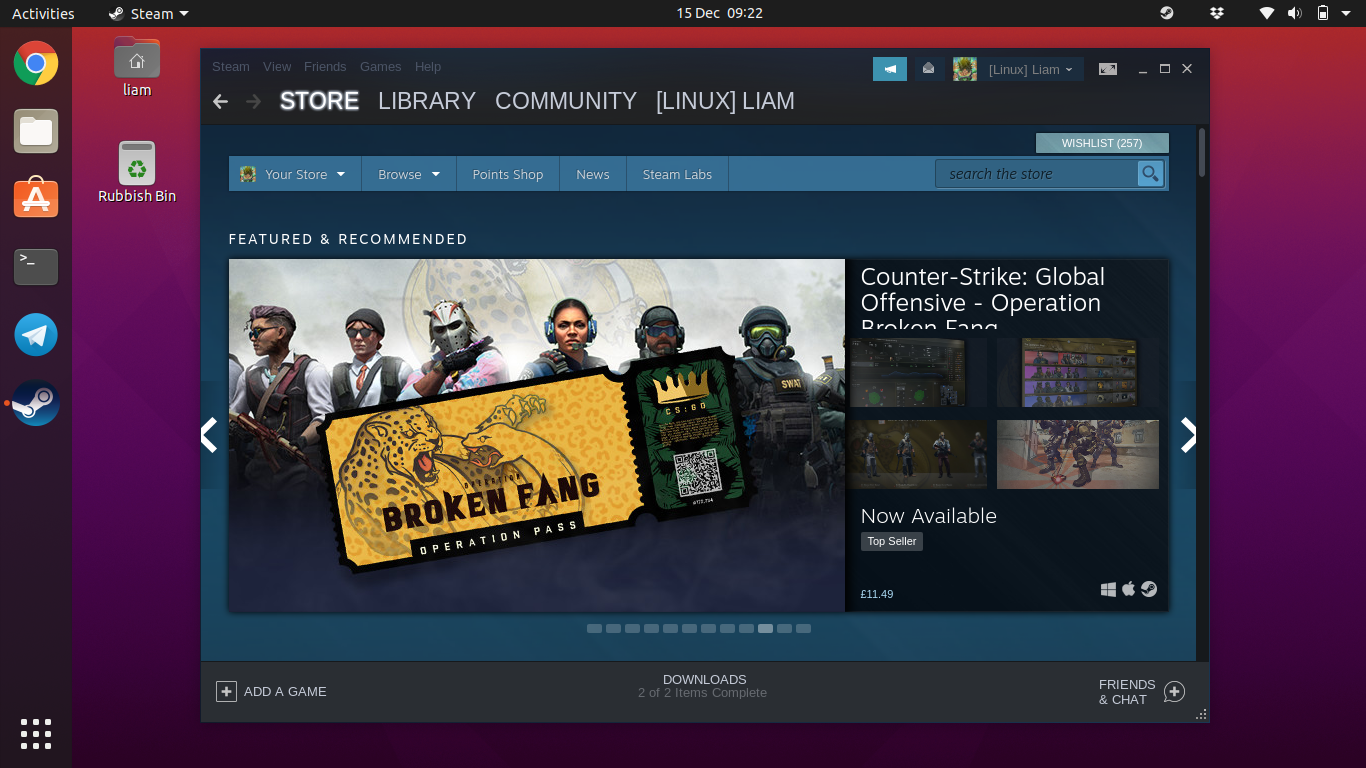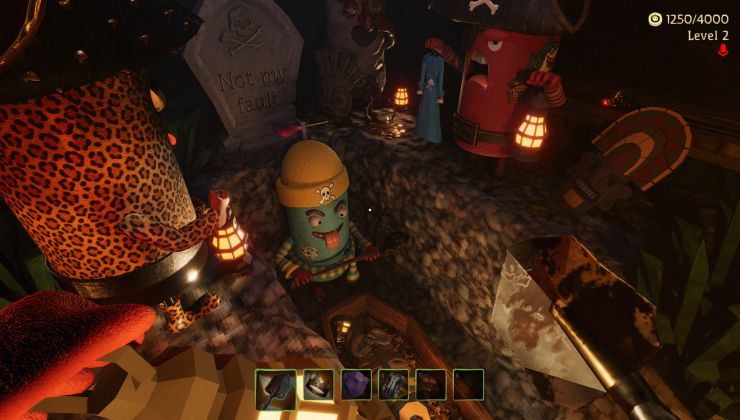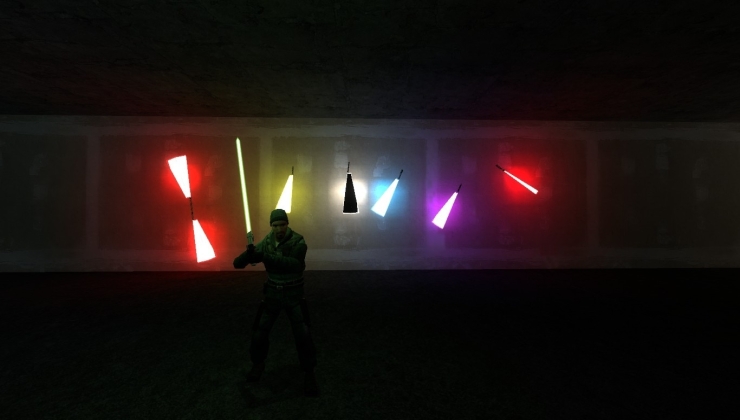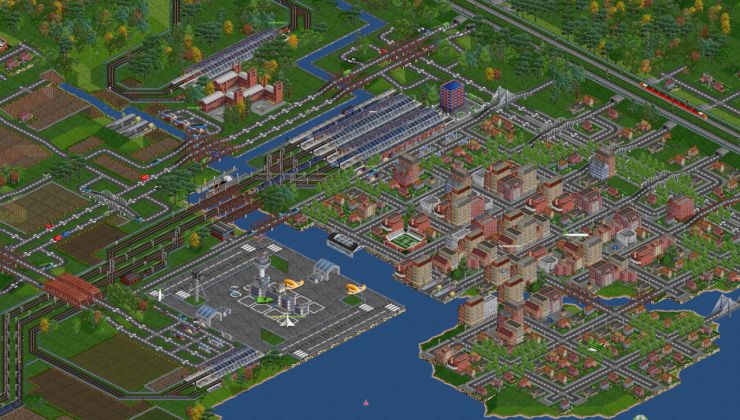For newer Linux users or people looking to switch, it can be a minefield to try and find accurate and up to date info on what Linux distro to game with. Here to help. What is the best Linux distribution for gaming? It's actually not a tough question.
With how far Linux has come in only the last 2 years, you can play a seriously large amount of games now. Sadly, there's some (quite a lot actually) places out there that seem to slap a new date on old crusty articles and give really bad Linux gaming advice. Most of the people writing these types of articles elsewhere clearly don't use Linux - I do, and I have done for around 15 years now.
Let's start off with what not to do shall we? First off, don't bother with SteamOS from Valve. Currently, it's out of date and has been for some time now. It hasn't been properly updated since 2019! Valve are not working on it but they might return one day. Anyone suggesting it likely has no idea what they're talking about and any website listing it is junk.
Next: Ubuntu GamePack or any "specialized" Linux gaming distribution. You can throw almost all of those types in the trash. They really don't do anything normal Linux distributions don't do already and they can often introduce their own special bugs. I consider them like the old discs you would find in the bargain bin in a local PC store. You really don't need them, don't waste your precious time.
So what to actually install at the end of 2020 and in 2021 to game on Linux?
The answer is actually really simple, it's not a long list and you have two really easy choices: Ubuntu or Pop!_OS. With their LTS versions (Long Term Support), you can use them as a safe bet for years.
 Pictured - Ubuntu 20.04 running Steam on my laptop.
Pictured - Ubuntu 20.04 running Steam on my laptop.
Why those? Well, Ubuntu is almost always the most widely used Linux distribution by normal desktop users. On Steam, it has always been on top as the most used distribution by gamers - there's an obvious reason for that too — it works. It's what I always recommend to newer users because it's like a warm cuddly Linux blanket. It's easy to find answers for, and it's not complicated to use. As for Pop!_OS, it's based on Ubuntu and since System76 sell desktop Linux hardware with it you can be sure it's also well tested.
If you do want a specialized distribution, perhaps for a console like experience that SteamOS was supposed to offer then take a look at ChimeraOS. It offers up a good big-screen experience for Steam.
Apart from that, everything you need can be easily installed directly on Ubuntu. Steam for the biggest library of Linux compatible games and for the Steam Play Proton compatibility layer for playing Windows games on Linux, Minigalaxy for GOG games, RetroArch for emulation, itch.io has their own client too for lots of indie gems and the Lutris game manager for everything else. It's really easy to get going too, on Ubuntu you just need to open up Ubuntu Software and search for Steam and it does it for you.
Don't make it complicated for yourself. I say all this as an Arch Linux user, which is a bit of a long-running joke about you always knowing who an Arch user is as they will tell you - and oops, I just fell into it. I'm saying it for good reason though! I have been through Arch Linux, Manjaro, Fedora and more and I still consider Ubuntu to be the number 1 Linux distribution for getting going quickly especially if you're not too comfortable yet.
Keep in mind that just as macOS and Windows do have plenty of issues, so does Linux. Don't expect perfection, be prepared to learn a bit and do things differently. If you need help, we have plenty of resources available for you. We have: a Forum, a Discord, IRC, Matrix, Telegram. You will find answers across there, with the Forum being the best way because search engines pick up answers from forums and do not from social chats like Discord.
Lastly - have fun and keep on gaming on Linux.
My personal recommendation would still be Debian Stable. Apart from the installation process (Debian has by far the superior installer) it's like Ubuntu, but a lot more stable. And I really mean _a lot_ more stable.
Quoting: 3zekielFlatpak is from Red Hat/IBM, it's also pretty much Red Hat locked in FlatHub (and nothing stops them from locking it even more like they've done with plenty other products), flatpak does not have confinement unless you use SELinux, which it isn't so easy to install in Debian based systems, you can't install different channels of the same application, runtimes don't get updated when apps depending on them are updated. None of them are perfect.Quoting: FauconNoirWhy everyone is talking about Pop!_OS ? What is so cool about it compared to others like Ubuntu or Manjaro for example ?Ubuntu took / is taking a strange direction again (snap packages) which is bothering to say the least. It relies on proprietary server, is pretty much canonical locked in and is technically not that good. It is - like often with canonical - a rushed solution trying to reinvent what was already ongoing (flatpak, called xdg app at that time) but cutting every possible corners to go faster. Result is bloated install size, unclear sandboxing capacities, very slow first (but not always only the first) startup times, and overall opacity on what you install on your computer since it comes from a locked in source.
I use fedora because it's pretty up to date and for gaming, specially with AMD and in need ot Windows games, it's pretty needed, but it's definitely not the distro for new users.
Before recommending any distro to people first we should know their needs and uses, not just blindly recommending one. It's not the same someone that wants to play some Steam games, that someone that wants to play the latest with the latest hardware.
Quoting: soulsourceThere is an important piece of information missing regarding Ubuntu: People should imho only use LTS versions. The non-LTS versions are horribly unstable (bordering being completely unusable), and will only lead to frustration.It seems that it's always a trade-off between latest drivers and updates (and the freedom to install newer software versions) versus a very reliable, stable computing environment. For me Mageia hits the sweet spot here as a very stable distribution for the non tech savvy user with lots of testing by the distribution maintainers and with major upgrades every 1.5 years. But I totally see that users have different needs, like a user of Void or a user of Debian (very) Stable. :happy:
My personal recommendation would still be Debian Stable. Apart from the installation process (Debian has by far the superior installer) it's like Ubuntu, but a lot more stable. And I really mean _a lot_ more stable.
And since the distribution-which-must-not-be-named was named, I expect some flaming down the road. So far it has been way too civilized and therefore utterly disappointing.
Quoting: ArehandoroYou can't really compare the case of flathub and snapcraft here. For flathub, absolutely everything (packaging wise) is open source and publicly available, same for server side sw. If they try to lock in, you can just pull everything and push somewhere, so the power is much much more in the hand of the community. Also, Fedora themselves (which are not strictly red hat) are doing their remote, gnome has theirs too I think. So the know how exists.Quoting: 3zekielFlatpak is from Red Hat/IBM, it's also pretty much Red Hat locked in FlatHub (and nothing stops them from locking it even more like they've done with plenty other products), flatpak does not have confinement unless you use SELinux, which it isn't so easy to install in Debian based systems, you can't install different channels of the same application, runtimes don't get updated when apps depending on them are updated. None of them are perfect.Quoting: FauconNoirWhy everyone is talking about Pop!_OS ? What is so cool about it compared to others like Ubuntu or Manjaro for example ?Ubuntu took / is taking a strange direction again (snap packages) which is bothering to say the least. It relies on proprietary server, is pretty much canonical locked in and is technically not that good. It is - like often with canonical - a rushed solution trying to reinvent what was already ongoing (flatpak, called xdg app at that time) but cutting every possible corners to go faster. Result is bloated install size, unclear sandboxing capacities, very slow first (but not always only the first) startup times, and overall opacity on what you install on your computer since it comes from a locked in source.
I use fedora because it's pretty up to date and for gaming, specially with AMD and in need ot Windows games, it's pretty needed, but it's definitely not the distro for new users.
Before recommending any distro to people first we should know their needs and uses, not just blindly recommending one. It's not the same someone that wants to play some Steam games, that someone that wants to play the latest with the latest hardware.
Now, of course, there are some issues. But if you update normally - I mean update all, not just one app -, runtime update will also work. But I agree, some dependency stuff need some improvement.
As for confinement, I'm pretty sure there is an apparmor backend. Confinment does work for me on work PC ubuntu, so not sure there really is an issue here ?
Flatpak is not perfect (well, nothing will ever be perfect) but it is moving forward quite nicely, and has good foundations. It also had a slow start, and some people thinking the pre 1.0 version were production ready and judged as such. Right now however, it has come along very far, and is a very good solution.
For snap, it is really just generalized docker with vendor lock in, so there's not much to be done to save it. Adoption (or its lack thereof for Snap) does show who's winning...
Now the issue is just like Mir/upstart, Canonical caused needless fragmentation because they think they can have influence on GNU/Linux direction by doing lock in / needless forks or new projects. But ultimately, they rush, gain some adoption while they are alone, and then slowly fail. It takes more or less time for each project, but ultimately they still fail, simply because their solution cause many unsolved/unsolvable technical issues, and because they always fail to gain real community traction (since they work against the existing community...). Leaving the issues of supporting their dying mess to others. At least for snap, it will be easy to just erase it, you will not have some "service start xxx" stuff in scripts for years to come.
With Pipewire, flatpak will pretty much have the final piece to its puzzle, and snap will hurry to where most Canonical forked / in house projects are now ... The code cemetery.
Now for the part about not recommending anything to anyone, yes we are clearly talking gaming here. But the overall usability of the system does matter (the very slow (first) startup times for snap apps as an example) as people rarely only just game on their system. Selinux is also an argument for basic random "found off the internet" stuff protection. Having spotify/Onlyoffice is probably something that will become important soon (French administration still sends you docx stuff as an example... Albeit less and less).
Last edited by 3zekiel on 15 Dec 2020 at 6:48 pm UTC
Tried GamerOS but it was rather meh.
For working&gaming I cycled through Mandrake, Slackware, Debian, PCLinuxOS, LFS, Mint, LMDE and probably some others until finally settling with Arch and living happily ever since. Note that I'm not recommending it to others, especially newbies.
Ubuntu? No thanks. I tried it numerous times and there was always something broken. Wifi or hibernation, or touchpad, or drivers etc. etc. It's jut not worth the hassle.
Quoting: EikeThis is the opposite I'm recommending everybody in the Steam forums (for any distribution). Because the distribution makers have the same package and more knowledge of their distribution than the user or even Valve. Is this claim based on anything?I was helping with the steam package update for Ubuntu 20.04. There are multiple problems with this package:
One of them is that the steam package is not autosynced from Debian because of custom Ubuntu changes. So, every time there is a new Ubuntu release, someone has to update this package manually (or keep it outdated). For example, in Ubuntu 20.10, the package is still on version 1.0.0.61-2 instead of the latest 1.0.0.68. This outdated version has multiple issues, for example missing dependency on bubblewrap (that, as far as I know, is required by Pressure Vessel to work properly) and xdg-desktop-portal (that is used by Proton since 5.13 to be able to open web URLs when running in a Pressure Vessel container). Or, for example, outdated udev rules missing some new devices. etc.
Other problem with the steam package is that because of how [SRU](https://wiki.ubuntu.com/StableReleaseUpdates)s are handled in Ubuntu, the package is usually only updated when a new Ubuntu release is out and updates are not backported into older Ubuntu releases (including LTS). Because SRUs for "feature updates" are usually not accepted in Ubuntu, only for bugfixes and minor updates (patches). Bigger updates or modified dependencies are also usually not accepted for SRUs. In other words, it's unlikely that, for example, the missing bubblewrap/xdg-desktop-portal steam package dependencies will be added in current Ubuntu releases, although they break Proton.
Last edited by AsciiWolf on 15 Dec 2020 at 1:44 pm UTC
I can no longer recommend Ubuntu in good conscience. It's just become too sketchy in its construction and function. It won't be the first time I jumped the Ubuntu ship while Canonical sorted itself out, but it might be the last, since I don't see them pressing hard to create a quality desktop experience in the near future.
In the meantime I'll be revisiting Mint and Manjaro in the coming months (both with an XFCE desktop, of course). Mint for the de-canonicalized Ubuntu experience and Manjaro because I liked everything about it until something broke my Steam Controller on game-night. I really only left Manjaro because it felt just a little too under-cooked at the time I tried it (though I really loved pacman).
For the new gaming user? I'd probably recommend Mint Mate for a familiar, stable, straight-forward experience.
Last edited by Nanobang on 15 Dec 2020 at 2:38 pm UTC
Quoting: FauconNoirWhy everyone is talking about Pop!_OS ? What is so cool about it compared to others like Ubuntu or Manjaro for example ?The out-of-the-box experience.
If you don't know how to customize it yourself, then using something as ready as Pop OS has huge value.
It has been my first recommendation for new users for years, because it's easy to use, stable, reliable, has reasonably current Nvidia drivers and it never stands in your way even if you're not a new user.
If only considering gaming, if I'm honest, it does pretty much all work immediately, and I've had very few problems (still running 18.04 LTS) - but when you're trying to do other work on the machine as well, I feel like I'm increasingly fighting against the OS instead of working with it.
I casually support some older people in my town with "having a working computer", who have now been using Ubuntu for 4 or 5 years (which did cut my "help, I think it's broken" phone calls and visits down to 2 a year each, instead of 2 a week on Windows), but things with disappearing options, strange defaults and Snaps - "special versions of programs that can't, by default, see your fonts, printer, camera, external/network drives or USB sticks" have begun to make it a lot more of a problem.
I'd done an install of Mint for a friend a few months ago and it seemed to have all the positives without the negatives. It was a joy to set up and use - and running the Live USB on both my computers, appeared to work perfectly with my existing machines and equipment. I don't doubt I'll uncover some issues once I'm using it full time, but it looks a very strong contender for what I'll be recommending for the next few years.
Quoting: MicromegasMy recommendation is Debian stable with backports. (Not necessarily for beginners, though.)Quoting: soulsourceMy personal recommendation would still be Debian Stable. Apart from the installation process (Debian has by far the superior installer) it's like Ubuntu, but a lot more stable. And I really mean _a lot_ more stable.It seems that it's always a trade-off between latest drivers and updates (and the freedom to install newer software versions) versus a very reliable, stable computing environment. For me Mageia hits the sweet spot here as a very stable distribution for the non tech savvy user with lots of testing by the distribution maintainers and with major upgrades every 1.5 years. But I totally see that users have different needs, like a user of Void or a user of Debian (very) Stable. :happy:
Last edited by Eike on 15 Dec 2020 at 3:48 pm UTC
I've had good luck gaming on Mint. Stuff tested on Ubuntu should usually work with Mint, since it's basically Ubuntu only better, plus with Cinnamon and Mate which I like as opposed to Gnome 3 which I don't, and without Snaps.
The only thing that makes me hesitate to recommend Mint for gaming is that my understanding is it tends to be a bit old and there are often reasons to want bleeding edge for gaming. Doesn't matter to me, I hardly ever buy games before they're on pretty solid sale or, in general, the kind of game that needs the bleeding edge stuff. But if I'm going to say to someone "Z is the distro you should use for gaming", that might be a problem for recommending Mint.
(Say, thinking of Mint and Snaps, I notice it's got a working Chromium again, where for a while it didn't exactly because Canonical was only packaging it as a Snap and Clem from Mint didn't want that. Anyone know what happened?)
Quoting: Purple Library GuyThe only thing that makes me hesitate to recommend Mint for gaming is that my understanding is it tends to be a bit old and there are often reasons to want bleeding edge for gaming.That problem is easily solved with a PPA or two, just like you'd do on Ubuntu.
Quoting: Purple Library Guy(Say, thinking of Mint and Snaps, I notice it's got a working Chromium again, where for a while it didn't exactly because Canonical was only packaging it as a Snap and Clem from Mint didn't want that. Anyone know what happened?)Mint started maintaining their own Chromium packages to get around the issue.
Last edited by tuubi on 15 Dec 2020 at 5:30 pm UTC
Quoting: pbI'm gaming on SteamOS 2, but eagerly waiting for SteamOS 3. :whistle:I liked SteamOS too for the PC I have connected to the TV, but it has got no updates including security updates since summer 2019, so I gave up on it. I doubt SteamOS 3.0 will ever be releases, and if then how can we trusty Valve to not also drop support on that without any announcement?














 How to setup OpenMW for modern Morrowind on Linux / SteamOS and Steam Deck
How to setup OpenMW for modern Morrowind on Linux / SteamOS and Steam Deck How to install Hollow Knight: Silksong mods on Linux, SteamOS and Steam Deck
How to install Hollow Knight: Silksong mods on Linux, SteamOS and Steam Deck